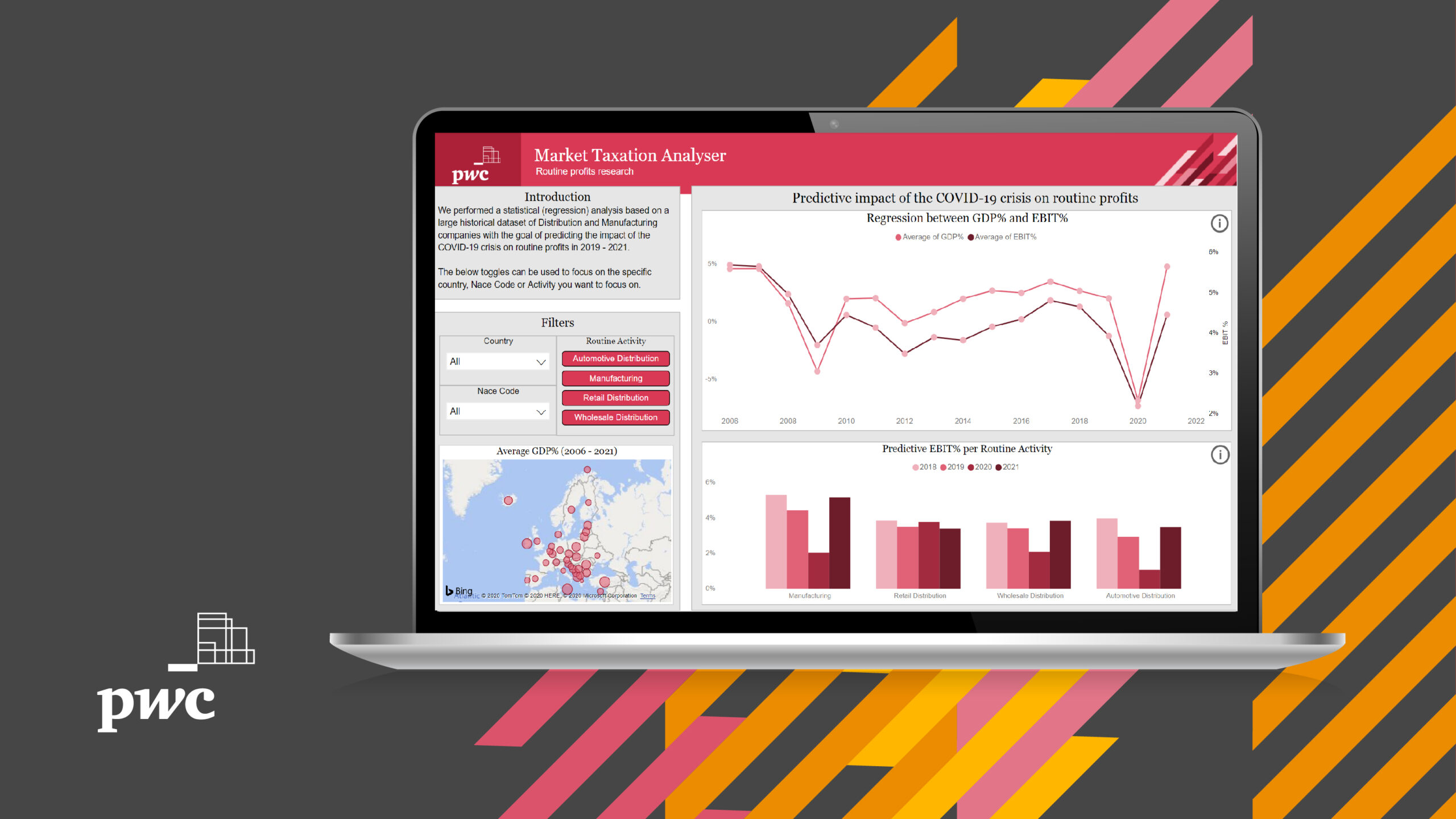Evidencing downward adjustments for limited risk entities commands more than a quick browse through high-level macroeconomic trends. As many companies consider to adjust their transfer pricing (TP) policies as a result of the current economic situation, we’ve performed a robust macroeconomic analysis linked to some 180,000 company data points. The approach is rooted in work done back in 2009 for the 28 EU Joint Transfer Pricing Forum (JTPF) member countries, where we identified a statistical significance and quantitative correlation between the profitability of routine or low risk entities and evolutions in GDP growth or decline. Our work shows that routine entities are not fully isolated from economic downturns or booms, contrary to what a rather stereotypical approach may suggest.
Given that the data sources used for benchmarking studies typically lag around two years behind, there is a need to avoid using pre-2019 data when setting TP policies for 2020 and onwards. The answers to the questions if, when and if so to what extent the current economic climate impacts profitability margins of limited risk entities are at our fingertips. The consolidated results reconfirm the conclusions drawn in 2009, in the sense that the 2020 economic contraction will create downward pressure on margins earned by routine entities. Depending on the variety of GDP indicators and the industry in which you operate, this downward pressure may be material and hence command a review and update of your TP policies.
Check out how our PwC Routine Margin Predictive Analyser predicts and quantifies the expected impact on routine profits for each industry and each individual country across the broader European area. It provides a great basis from which to see interesting correlations per industry and functionality, hence offering a robust tool for proactive monitoring of the TP methodology as part of business model sustainability.

Please get in touch with your regular TP contact at PwC. Alternatively feel free to contact Ruben Opdenakker, Isabel Verlinden or Jonas Van de Gucht if you want to dive deeper into the work performed and see what effect this has on your industry.